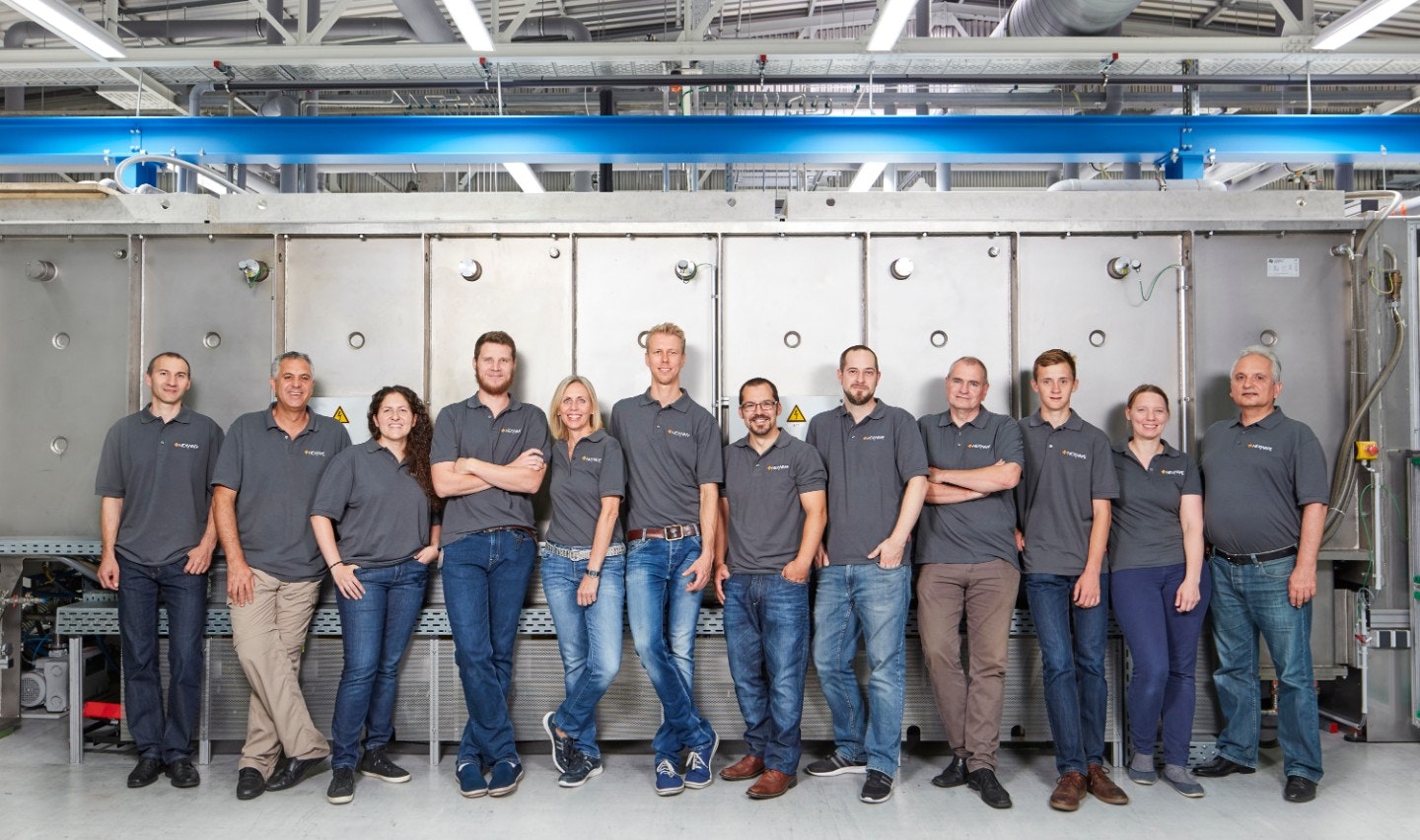Where does entrepreneurial drive come from? Patrick Walsh takes inspiration from his uncle Joe who, in 1965, decided there was money to be made from the copper in abandoned undersea transatlantic cables that stretched from Europe to the US.
Joe gathered a small crew, sailed off the southwest of Ireland, and recovered some 300 miles of obsolete cable, which had sunk to the ocean floor.
“There’s always been entrepreneurs in Ireland — they just might have been a very different type before,” says Walsh, who is CEO of Dogpatch Labs, the almost 10-year-old Irish tech accelerator which is to Dublin what Station F is to Paris.
Walsh borrowed some of Joe’s chutzpah on his own journey. With no tech background, and even less of a business plan, Walsh managed to convince two wealthy Irish businessmen in 2015 to let him set up Dogpatch in their vast — and at the time almost-completely vacant — building in the city's docklands. Today a sample of Joe’s cable sits pride of place in the middle of Dogpatch, which houses over 250 startups.
Clearly, there’s a liveliness to the Irish tech scene that didn’t exist until fairly recently, but it’s tempered with a sense, too, that there are opportunities not being seized. The hard sell, Walsh explains, can be in convincing people to swerve a Big Tech job in favour of a startup gig.
Here Walsh argues for more policy efforts to pull talent into startups and explains how new labs would help hardware-focused founders. He also discusses whether fintech megastar Stripe was a one-time streaking Irish comet or if we can expect more global tech hits like it.
Getting talent out of big tech and into small
Ireland, a country that only 30 years ago was trailing in the dust of much more prosperous neighbours, is now one of the EU’s top 10 economies, with a GDP per capita close to Luxembourg’s. Global tech giants such as Google, Apple, Meta and Amazon come for the English-speaking workforce and proximity to the US East Coast — and stay for the low tax.
An economic model that's so reliant on wooing American companies is not to everyone’s taste — EU countries complain that Ireland unfairly hoovers up too much US corporate investment at the expense of the wider bloc — but the arms-open approach has helped stir up a decently-sized scene of some 2,200 startups and scaleups, employing over 50k people, according to figures from tech lobby Scale Ireland.
The country’s forte is B2B, the “picks and shovels” startups — like software platform Intercom, Ireland’s first unicorn, and tax compliance-automating Fonoa — that help other, usually bigger, businesses get stuff done. Ireland ranks fourth in Europe for number of startups per head of population, behind Estonia, Iceland and Luxembourg, according to the latest State of European Tech report.
And still, a country paved with US tech creates its own challenges. For one, these jumbo companies provide cushy, well-paid jobs — the median salary for a software engineer in Dublin is just over $100k — to people who might otherwise have set up their own startups.
“It’s a bit of a double-edged sword,” says Walsh. “We have the best policy environment in the world if you’re a Google but we really still lag if you’re an entrepreneur.”
There are some ex-Googlers and ex-Amazonians starting companies in Ireland. “But it’s also very attractive just to stay [in these companies]. You really need [better] share options in startups and [other] levers that pull that talent into the startup world.”
Money’s tight
Walsh was speaking to Sifted after Dogpatch — named after the San Francisco district and occasionally mistaken for a dog day care by passers-by — had its contract renewed by the government to run the state startup accelerator, NDRC, for two more years. The programme operates through a network of tech sites in cities across Ireland — namely PorterShed in Galway, RDI Hub in Kerry and Republic of Work in Cork. Close to €60m has been raised by startups participating in the accelerator over the last three years.
But like everywhere else, VC funding is a lot harder to come by in Ireland these days. Over half of the country’s CEOs and founders say fundraising is their biggest challenge, according to a recent poll of 340 startups by Scale Ireland. Capital invested into Irish startups in 2023 may have gone up 2% on the previous year, reaching €1.35bn, according to Irish Venture Capital Association (IVCA) figures, but fully half of this money was raised by just eight companies.
Ireland’s multinational riches obscure the relatively small pot of money available to startups. The country never had an industrial revolution that created big companies or intergenerational wealth. Family offices and endowment funds are small and the IVCA calculates that less than 0.01% of the equity holdings of Irish pension funds is allocated to private equity and VC funds.
The state is a dominant player — some would say a little too involved at times. With a €500m budget, the Enterprise Ireland agency has been Europe's most active investor by far in recent years, notes the FT, citing PitchBook data.
What’s missing is a significant population of angel investors — the experienced founders who are willing and able to invest in startups. Walsh argues, however, that a reduction in the capital gains tax announced in the government budget last year was a “meaningful step forward”. Over two-thirds of VC funding for Irish startups in 2023 came from foreign sources, IVCA data shows.
Ireland lacks “certain other pieces of important infrastructure,” Walsh says. One thing he’d love to see is shared hardware labs — places where founders could go to access expensive kit like lasers and cutting machines. “That’s a big hold-back,” Walsh says.
Another challenge facing startups is an acute housing crisis, with rents among the highest in the EU. “Housing [has] definitely come up a lot in the last three years,” says Walsh, who says he knows examples of new startup hires who couldn’t find places to live and had to remain as remote workers.
Is Stripe Irish?
Last week saw a heated debate on the online cauldron X, formerly known as Twitter, over who gets to claim Stripe, the massive fintech founded in 2010 by Ireland’s Collison brothers. After visiting the company's San Francisco base, Ireland’s EU commissioner Mairéad McGuinness tweeted that the business was a “European success story in payments”. Cue fireworks.
Many X users were adamant: no it isn’t. One commenter linked to a blog by Stripe CEO Patrick Collison, in which he said he suspects the company couldn’t have been started in Ireland. Not that the Collison brothers are successes in exile: the pair invest in Irish startups and have set up a software course in Limerick University that offers work placements at Stripe (the company employs several hundred in its dual Dublin HQ).
Parking the argy-bargy: has enough changed so that a Stripe could succeed in Ireland today? “Our mission is to get Ireland to a place where… people want to stay and don’t need to leave,” says Walsh. “We’re not the biggest ecosystem [and] we’ll never build the biggest — but we could set the ambition of being the most connected hub in the world.”
His message: Stripe won’t be Ireland’s last mega-contribution to the tech economy. Strong contenders for the Irish tech crown include drone delivery specialist Manna, revenue-based funding lender Wayflyer and data security service Evervault.
Or who knows: maybe the next startup blockbuster on the island will be started by someone who was turned down for a plushy Big Tech role.


